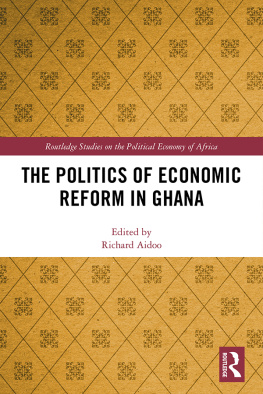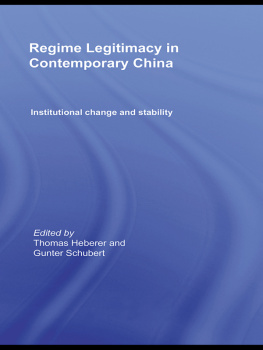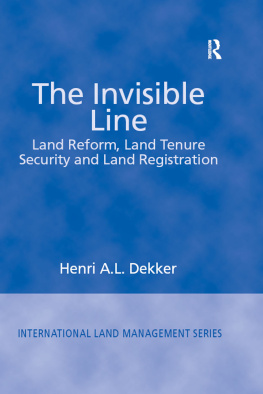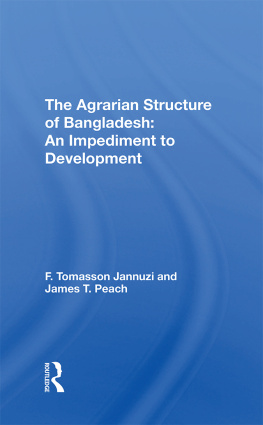PROPERTY REGIMES IN TRANSITION
For my three daughters Anneleen, Marleen, Marloes and their husbands
Property Regimes in Transition
Land Reform, Food Security and Economic Development: A Case Study in the Kyrgyz Republic
Henri A.L. Dekker
First published 2003 by Ashgate Publishing
Reissued 2018 by Routledge
2 Park Square, Milton Park, Abingdon, Oxon OX14 4RN
711 Third Avenue, New York, NY 10017, USA
Routledge is an imprint of the Taylor & Francis Group, an informa business
Copyright Henri A.L. Dekker 2003
The author has asserted his moral right under the Copyright, Designs and Patents Act, 1988, to be identified as the author of this work.
All rights reserved. No part of this book may be reprinted or reproduced or utilised in any form or by any electronic, mechanical, or other means, now known or hereafter invented, including photocopying and recording, or in any information storage or retrieval system, without permission in writing from the publishers.
Notice:
Product or corporate names may be trademarks or registered trademarks, and are used only for identification and explanation without intent to infringe.
Publisher's Note
The publisher has gone to great lengths to ensure the quality of this reprint but points out that some imperfections in the original copies may be apparent.
Disclaimer
The publisher has made every effort to trace copyright holders and welcomes correspondence from those they have been unable to contact.
A Library of Congress record exists under LC control number: 2003045157
ISBN 13: 978-1-138-71563-9 (hbk)
ISBN 13: 978-1-315-19744-9 (ebk)
Henri A.L. Dekker
PROPERTY REGIMES IN TRANSITION
Land Reform, Food Security and Economic Development: A Case Study in the Kyrgyz Republic
Many of the former communist republics strive to adopt a market economy in which the privatization of landed property is a key element. Generally it is expected that by doing so, economic development will take off improving food security and decreasing (rural) poverty. The relationships among changing land regulations, economic development and poverty are complex and, as yet, little understood. One can also refer to these phenomena as land reform, land market development, and livelihood of the poor, or restructuring of agricultural production, stimulating prosperity growth, and alleviating food insecurity. But that is just a matter of giving different names to basically the same phenomena. This book is the result of several assignments in various countries, mainly in Central and Eastern Europe. The text aims at providing more insight in the links between the mentioned phenomena in the context of land tenure and suggesting specific assistance with monitoring the effectiveness of projects that initiate land tenure changes.
Being educated as a land-surveyor and a registrar it might surprise some readers that in this book I do not put more emphasis on land registration and cadastral systems. They do not even appear as specific elements in the model I developed to monitor the progress of projects in which change of land tenure is a main goal. I have come to believe that land registration and cadastral systems are tools to support more important and all-encompassing social phenomena and human perceptions, like property regimes and land tenure security. In many cases these tools are essential, but not as indispensable as conventional wisdom leads us to believe. I noticed that several societies function perfectly well without land registration systems or cadastres. Land tenure security obviously does exist with and without written documents. In societies where communal land tenure is dominant, introduction of land registration systems might even be a threat to land tenure security of native people as recent research shows.
On the other hand, formal land registration and titling can be the best way to protect claims and traditional rights of native people against a government that wants to extensively exploit their natural habitat. No general rule or formula will provide the achievement of land tenure security. Like other social phenomena, land tenure security is a complex conceptual matter that will be accomplished best when it blends in with the historic, cultural and even the religious concepts of people. There is no standard desktop solution available to guarantee realization of the concept of land tenure security.
Many countries in transition seek to find a quick way out of economic stagnation by means of land reform. With successful land reform projects governments in transitional economies expect to achieve economic growth and thus alleviation of rural poverty. Nowadays there is ample research to prove that, to be effective, land policy reforms need to be complemented by policy and institutional reforms, and by effective rural development measures. However, this is not a new finding (Dorreen Warriner had arrived at the same conclusion in the 1960s with her concept of 'integral' land reform). The necessity of application of such a 'total package deal' is still often ignored.
This book will not give clear-cut answers nor will it provide blueprint solutions for successful land reform and land tenure change projects. The ideal land reform project is one especially designed - idiosyncratic in character - for the specific country or region at hand. The aim of this book is to increase the awareness of links between land reform, food security and economic development. Moreover, it suggests use of a model for rapid assessment of project progress in which macro-economic indicators are applied in a systematic way to give insight in conceived phenomena like land tenure security and food security and to provide warning signals for less-desired developments as a result of project implementation. Although the data used in this book are collected in only a number of countries in transition, much of the contents of the book can be applied in all former communist countries now in transition from a centrally planned economy into a market economy.
Many sources have provided me with material for this book. Several of these sources can be acknowledged by mentioning them in the bibliography. A number of sources gave oral information or provided me with data, documents, and numbers. I like to thank all contributors and especially the ones that remain anonymous. Most likely, even without knowing, several local experts and fellow expatriate experts supplied data, useful thoughts, valuable considerations, and made information accessible to me that I have used here. Thank you all for sharing your doubts, your visions and your ideas with me.
This book aims at assisting in the accomplishment of more successful land tenure changing projects to improve the livelihood of the poor and to provide a positive change in the daily life for many of the inhabitants of post-communist countries.
Doreen Warriner in 'Land Reform in Principle and Practice'. Oxford: Clarendon Press. 1969
Property Regimes in Transition has been in the making during and after the completion of an assignment in Kyrgyzstan.
I collected data and this was provided with indispensable support during the assignment and also at later stages knowingly or unknowingly by Andr, Carol, Carole, Edward, Edwin, Ernie, Fatima, Gavin, John, Peter, Rick, Theo, Tolobek, Valentina and supportive other friends whom I do not need to mention by name.








